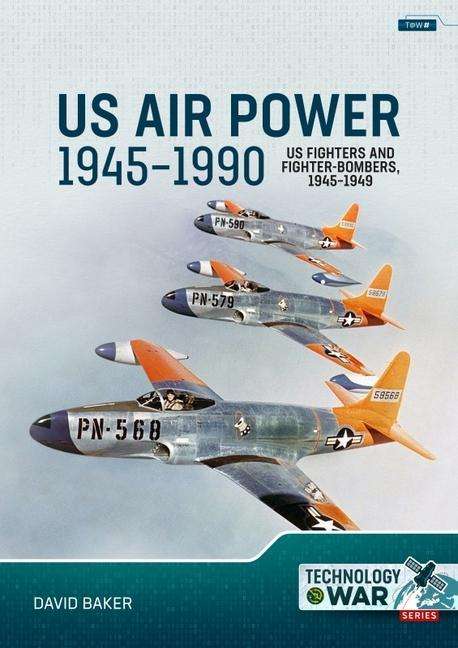David Baker: Us Air Power, 1945-1990 Volume 1: Us Fighters and Fighter-Bombers, 1945-1949, Kartoniert / Broschiert
Us Air Power, 1945-1990 Volume 1: Us Fighters and Fighter-Bombers, 1945-1949
- Volume 1 - Us Fighters and Fighter-Bombers, 1945-1949
(soweit verfügbar beim Lieferanten)
- Verlag:
- Helion & Company, 10/2024
- Einband:
- Kartoniert / Broschiert
- Sprache:
- Englisch
- ISBN-13:
- 9781804513750
- Artikelnummer:
- 11465188
- Umfang:
- 92 Seiten
- Gewicht:
- 336 g
- Maße:
- 292 x 206 mm
- Stärke:
- 8 mm
- Erscheinungstermin:
- 10.10.2024
- Hinweis
-
Achtung: Artikel ist nicht in deutscher Sprache!
Klappentext
Examines the early Cold War development of the USAF's jet fighters and fighter-bombers, detailing political, industrial, and technological challenges and innovations.
In the immediate aftermath of the Second World War, the air forces of the United States faced unprecedented challenges. Demobilization had stripped the armed forces of millions of personnel, while the rapid transition from a wartime economy strained the aviation industry at the same time as the US Army Air Forces (USAAF) was re-established as the independent US Air Force (USAF). US Air Power 1945-1990 Volume 1: US Fighters and Fighter-Bombers 1945-1949 examines this pivotal period, analyzing the first steps the USAF took to re-establish its dominance in the skies during the early Cold War era.
This volume meticulously documents the political, industrial, and technical decisions that shaped the development of the USAF's early jet fighters and fighter-bombers. It covers the transition from propeller-driven aircraft to first-generation jet designs, showcasing the radical innovations and experimental prototypes that laid the foundation for future air power. Readers will find detailed descriptions of key aircraft such as the P-80 Shooting Star, the F-86 Sabre, and the F-84 Thunderjet, which became operational despite the severe budget constraints and strategic uncertainties of the time.
Author David Baker brings to light the untold stories behind these aircraft. He provides an integrated narrative that goes beyond mere type histories, weaving together the political backdrop, industrial struggles, and technological advancements that influenced the design and deployment of these pioneering jets. This approach offers a comprehensive view of how the USAF navigated the post-war landscape to emerge as a formidable force by 1949.
The book also includes an appendix detailing speculative projects that never reached production, such as the McDonnell XF-85 Goblin 'parasite fighter', Convair XF-92 delta-wing interceptor and many others, alongside tables listing the performance characteristics of both operational and experimental aircraft from this era. These sections offer invaluable insights into the 'what ifs' of aviation history, showing how alternative designs might have shaped air combat strategies differently.
The first in an extensive series of volumes, each exploring different facets of US air power during the Cold War, subsequent titles will cover bombers, naval aviation, and the evolving roles of fighters and bombers through conflicts such as the Korean and Vietnam wars. Each volume will maintain a focus on the technical and engineering aspects that defined these aircraft, rather than operational histories alone.
Extensively illustrated, including rare photographs and specially-commissioned color artwork, this book provides a thorough and engaging exploration of a transformative period in US air power history.
Biografie
David Baker, Jg. 1967, ist Physikprofessor am Austin College in Texas.
